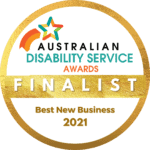Short Term Accommodation (STA) is a type of support funded by the NDIS to provide temporary respite, support, and accommodation for you, typically for up to 28 days per year. It helps you develop new skills, engage in community activities, and gives your informal support a break.
The NDIA (National Disability Insurance Agency) makes decisions about STA (Short Term Accommodation) funding through a structured process that ensures support meets your needs, aligns with your goals, and provides value for money.
Here is an outline of how these decisions are made:
Step-by-Step Decision-Making Process for STA
Assessment of Needs and Goals:
Assessment: The NDIA conducts an assessment to understand your individual needs and goals. This includes evaluating the reasons for requiring STA, such as providing respite for your carers/informal support, supporting skill development, or facilitating community participation.
Alignment with NDIS Goals: The request must align with your NDIS goals, which might include increasing independence, developing new skills, or enhancing social participation
Evaluation of Informal Supports:
Role of Informal Supports: The NDIA considers the role of informal supports, such as family and friends, in your life. The NDIA may fund STA if your family or informal supports can support you for longer
Assessment Against Funding Criteria:
Disability related needs: STA must address needs directly related to your disability.
Cost-Effectiveness: The NDIA ensures that the STA provides value for money, balancing cost-effectiveness with the quality and suitability of the support provided to you.
Goal Achievement: The NDIA assesses whether the STA will effectively help you achieve your NDIS goals.
Consideration of supporting documentation:
Medical evidence: Documentation such as medical reports and allied health assessments that support the need for STA is reviewed.
Support letters: letters from healthcare professionals, support workers, or informal supports that explain how STA will benefit the participant are considered.
Previous usage and feedback: Past usage of STA and any feedback provided by you or your informal support can influence the decision.
Flexibility and customisation:
Individual needs: The NDIA considers your specific needs, including whether group settings or individual support is more appropriate.
Flexible Funding: STA funding is provided flexibly, allowing you to use it in ways that best suit your schedule and needs, such as in blocks or on weekends; up to 28 days a year, and it can be used in different ways, like one weekend a month or a two-week block; up to 14 days at a time.
Monitoring and Review:
Ongoing monitoring: The NDIA monitors the use of STA to ensure it continues to meet your needs and goals.
Plan Review: During your plan review, the effectiveness of STA funding is evaluated, and adjustments are made as necessary based on your evolving needs and goals.
Crisis Situations:
Immediate Needs: In some crisis situations where the need for STA is directly related to your disability, the NDIA can make swift decisions to provide the necessary support.
Alternative Solutions: For general housing crises, the NDIA directs participants to appropriate homelessness services while considering STA for disability-related emergencies.
Additional Considerations
Short Term Accommodation is not meant for holidays; it’s for respite or skill-building related to your disability.
Consult with your Support Coordinator or other NDIS partners if you need disability support while on holiday.
By understanding the NDIS criteria for Short Term Accommodation, you can better prepare to discuss your needs with your Local Area Coordinator, ECEI partner, Planner and/or support coordinator. They can help you explore options, develop goals, and ensure your plan reflects how STA can contribute to your overall well-being and progress. Remember, STA is a valuable tool to enhance your independence, build skills, maintain your well-being and participate in the community – all within the context of your NDIS goals and disability-related requirements.
We want to acknowledge and understand that the NDIS guidelines for Short Term Accommodation can be tricky to navigate. Don’t worry, you’re not alone! This information is just a starting point. We’re here to help – we can break it down into smaller, easier-to-understand pieces so you can make the most of it. Simply reach out to us on enquiries@supportedtravelx.com.au or give us a call on 1300 200 789.
More information





